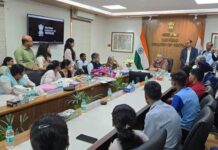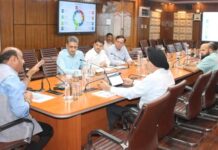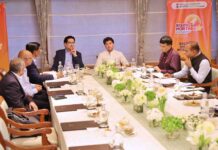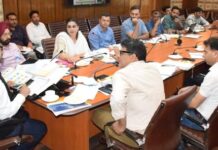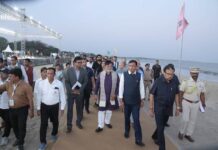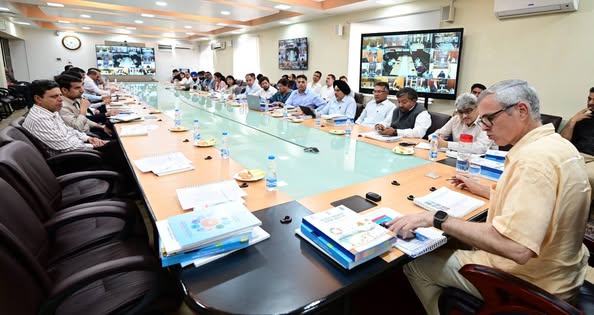MAY 27: Jammu and Kashmir Chief Minister Omar Abdullah chaired a high-level meeting of the Planning Department, underlining the need for district-level, data-centric planning to accelerate balanced and inclusive development across the Union Territory. The session marked a strategic push toward achieving the long-term developmental roadmap under the Viksit J&K 2047 vision.
In his address, the Chief Minister emphasized the importance of formulating short-term, district-specific goals that reflect the unique socio-economic realities of each region. These goals, he said, would serve as essential milestones toward realizing the broader developmental aspirations of the territory.
The meeting spotlighted several key areas including the Sustainable Development Goals Coordination Centre (SDGCC), the District Domestic Product (DDP), and the District Good Governance Index (DGGI). The CM highlighted the critical role of these metrics in assessing performance, shaping responsive policies, and identifying bottlenecks at the grassroots level.
Omar Abdullah also called for the use of data insights derived from Mission Yuva—a youth-focused initiative—and governance indicators to refine schemes and plug structural gaps in planning and execution. “Empirical evidence must guide interventions. Only then can we ensure that every rupee spent translates into meaningful outcomes,” he remarked.
The Chief Minister stressed the need to maintain continuity in performance measurement frameworks and urged departments to institutionalize best practices. He lauded J&K’s recent improvements in national rankings and said the goal should now be to translate those gains into visible on-ground progress.
Abdullah also called on officials to study and adopt replicable development models from institutions like NITI Aayog and UNDP, especially those demonstrating success in comparable socio-economic contexts. He noted that knowledge-sharing and partnership with national and international institutions could bring innovation and efficiency to J&K’s development processes.
Several important reports and policy documents were unveiled during the meeting, setting the stage for a more targeted, evidence-based approach to planning and governance. Officials from the Planning Department, senior bureaucrats, and representatives from key line departments attended the session.
The meeting concluded with a renewed commitment to build a resilient, inclusive, and future-ready Jammu and Kashmir through strategic planning, youth engagement, and governance innovation.






